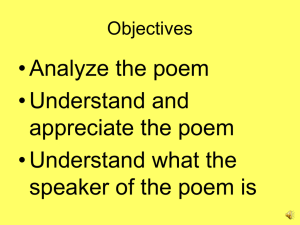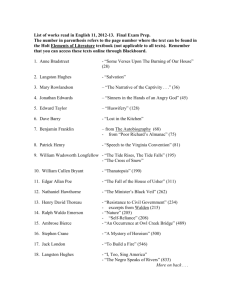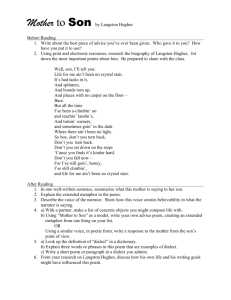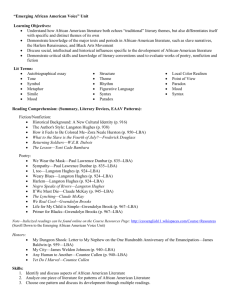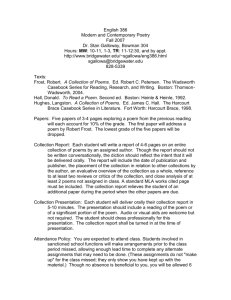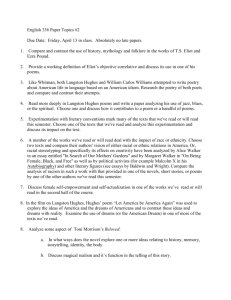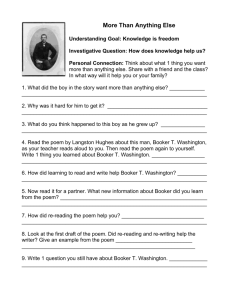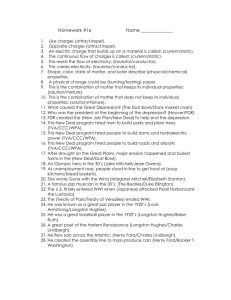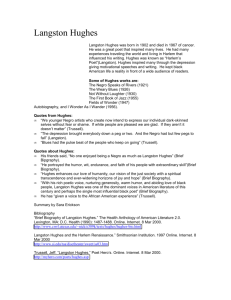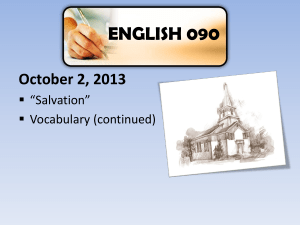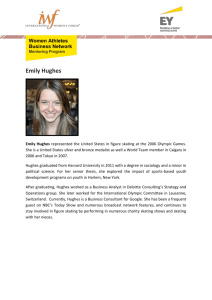Mother to Son
advertisement
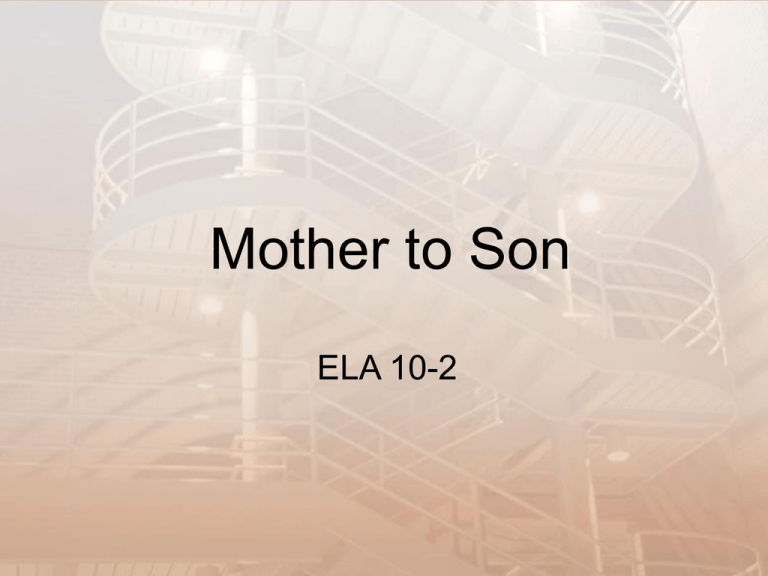
Mother to Son ELA 10-2 Langston Hughes Langston Hughes (1902 – 1967) was an American poet, novelist, playwright, and newspaper columnist. Hughes was born James Mercer Langston Hughes in Joplin, Missouri, the son of Carrie Langston Hughes, a black teacher, and her white husband, who wanted to be a lawyer, but became a shoekeeper named James Nathaniel Hughes. In Langston Hughes: An Introduction to the Poetry by Onwuchekwa Jemie, Hughes is quoted as saying his father "despised Negroes" and felt his father despised himself as well because he was one. This distant relationship with his father heavily influenced his work. After the separation of his parents, young Langston was raised mainly by his grandmother Mary Langston, a longtime activist. He spent most of childhood in Lawrence, Kansas, and he began to write poetry when he was 13. His childhood was not a happy one, but it was one that was to heavily influence the poet he was to become. He lived with his by-thenremarried mother as an adolescent in Lincoln, Illinois; it was there that he discovered his love of books. Upon graduating from high school in 1919, Hughes spent a year in Mexico with his father, but he was unhappy there and often contemplated suicide. Hughes soon spent a year attending Columbia University, where he studied engineering. He then left school and joined the Navy as a ship's steward, traveling to West and Central Africa and Europe. - Wikipedia.org before you read . . . • How would a person's life experiences affect what he or she writes about? – In other words, how important is context for the author, and how important is it for the reader to understand the author's life story? • What is the best piece of advice you have ever been given? – Who gave it to you? – How have you put it to use? • "Mother to Son", page 205 “Mother to Son” 1. Summarize what this mother is saying to her son. • metaphor - an implied comparison between two unlike things • extended metaphor - a metaphor that is extended through a stanza or entire poem, often by multiple comparisons of unlike objects or ideas 2. Explain the extended metaphor in this poem. 3. Describe the voice of the narrator. Show how this voice creates believability in what the narrator is saying. advice poem • Make a list of concrete objects you might compare life with. • Using "Mother to Son" as a model, write your own advice poem, creating an extended metaphor from one item on your list. • Illustrate your poem with one graphic from the Microsoft Clip Art web site, linked in the lesson. • Write a paragraph of at least ten sentences, explaining the extended metaphor you created, and the message of your poem. Explain why you illustrated your poem with the graphic that you did.
